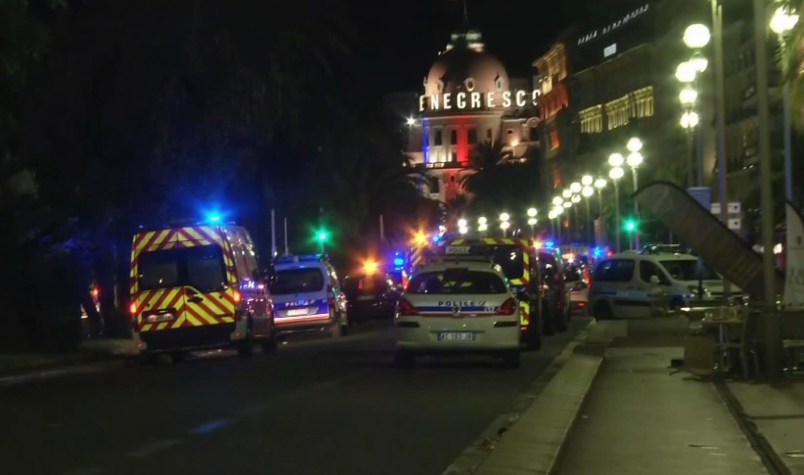To get an idea of the enormity of what is happening in France, one can convert it to American terms. France is smaller than Texas and about seven percent the size of the United States. Its population is about a sixth that of the U.S. From January 2015, when the Charlie Hebdo massacre took place through yesterday in Nice, France will have suffered – when the full extent of yesterday’s toll is known – almost 250 deaths from terrorist attacks. That’s about 1500 in American terms. Imagine if Texas alone had suffered that many deaths from terror in the last eight months – what it would do to the mentality of the people there, the extent to which they would be living in fear.
When I was in Paris last winter, about nine of ten books on the front tables of political section of bookstores were about terrorism or radical Islam. In 2015, Michel Houellebecq’s Submission – about an Islamic takeover of France – was a runway bestseller. I can’t imagine what it will be like now. In his excellent blog on French politics, Arthur Goldhammer speculates that the latest attack will lead to the National Front’s Marine Le Pen, with her tough message against “Islamic fundamentalism,” winning the presidential election next year. I wouldn’t go that far. But I would guess that it would at the least win former President Nicolas Sarkozy the nomination of the center-right Republicans and lead to a runoff after the first round between him and Le Pen. Even before the attacks in Nice, it seemed likely that Le Pen would best current president Francois Hollande or another Socialist Party candidate in the first round.
Much of the post-mortem on the attack will center on the identity and connections of the terrorist, a 31-year-old Frenchman of Tunisian descent. What has been reported so far is that he had a history of petty crime, but not – as far as the police know – of association with Islamic radicalism. What’s significant is that he, like the Kouachi brothers who perpetrated the Charlie Hebdo attacks, was a French citizen. Indeed, of the seven people associated with the November 2015 café and soccer stadium killings, all were citizens of European Union countries. What to make of this? I’m not an expert on these matters, but I can describe where people know more than I do are looking for answers.
It’s again useful in this case to compare France with the United States. The American Muslim community is primarily middle class. In France, it is primarily part of an underclass. The figures are difficult to discern because the French census doesn’t ask about religion, but estimates of France’s Muslim population range between 6 and 12 percent of the total, most of whom are immigrants from or descendants of immigrants from France’s former colonies in North Africa. Muslims are estimated to be between 60 and 70 percent of France’s prison population. Unemployment is around 20 percent or double that of French average and 40 to 50 percent among 15 to 24-year-olds. That’s a recipe for desperation and extremism. And add to it the still bitter legacy of French colonialism.
In France, there are two competing theories of what leads people from this background to commit acts of terror. Olivier Roy describes the process as the “Islamicization of radicalism” – in other words, desperate, angry, unhappy people seek a rationalization for their anger in Islamic radicalism rather than in Islam per se. Gilles Kepel is more inclined to blame the influence of Islam. It’s still not known whether the 31-year-old French Tunisian was acting on behalf of an Islamist cause – it could, I suppose, be a case of personal derangement unrelated to any politics – but if he was, it would seem to fit Roy’s characterization. And in that case, the French will have to do something not only about Islamist agitators in their midst, or ISIS in Syria, but also the existence of an aggrieved underclass.






